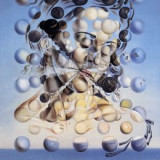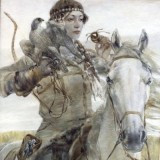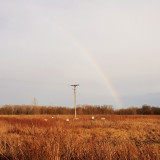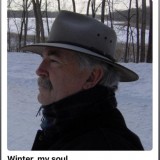Veronika Decides to Die - Discussion
-
Liz
9 years agoI've been kind of busy and almost forgot to post something. I figured since it's the last weekend of June, we'll discuss the book and if all goes well someone can choose the next book by next weekend....maybe?
I found questions online and I'll post some. If anyone has questions or input of their own, please add on. I didn't watch the movie, but if you have, please feel free to discuss that as well.
1. Did you enjoy the book? Why or why not?
2. Did it pull you in; or did you feel you had to force yourself to read the book?
3. How realistic was the characterization? Would you want to meet any of the characters? Did you like them? Hate them?
4. Did the actions of the characters seem plausible? Why? Why not?
5. If one (or more) of the characters made a choice that had moral implications, would you have made the same decision? Why? Why not?
6. Can you pick out a passage that strikes you as particularly profound or interesting?Â
7. Does the book remind you of your own life? An event? A person--like a friend, family member, boss, co-worker?Â
8. What specific themes did the author emphasize throughout the novel? What do you think he or she is trying to get across to the reader?
9. How do characters change or evolve throughout the course of the story? What events trigger such changes?
10. How did you feel about the ending? -
GB
9 years ago1. Did you enjoy the book? Why or why not?
I think I did, we hear about suicidal stories everyday but this novel deals with this issue differently.
2. Did it pull you in; or did you feel you had to force yourself to read the book?
No force, it's not boring book.
3. How realistic was the characterization? Would you want to meet any of the characters? Did you like them? Hate them?
Partialy real, but most of the time they just illustrated Coelho's kind of intellectual thoughts and philosophy., I'd love to meet dr. Igor, he is genius, Zedka as well, very wise woman.
4. Did the actions of the characters seem plausible? Why? Why not?
Not really, they are supposed to be mentally ill in the story lol
5. If one (or more) of the characters made a choice that had moral implications, would you have made the same decision? Why? Why not?
I can't answer this without awareness of the decision itself.
6. Can you pick out a passage that strikes you as particularly profound or interesting?
"Zedka: I'll say that insanity is the inability to communicate your ideas. It's as if you were in a foreign country, able to see and understand everything that's going on around you but incapable of explaining what you need to know or of being helped, because you don't understand the language they speak there.
Veronika: We've all felt that.
Zedka: And all of us, one way or another are insane."
7. Does the book remind you of your own life? An event? A person--like a friend, family member, boss, co-worker?
Yes, sometimes we have these dark times when we lose inspiration and passion about life, forgetting to live more intensely.
8. What specific themes did the author emphasize throughout the novel? What do you think he or she is trying to get across to the reader?
Life must be embraced every second, our days might be just numbered.
9. How do characters change or evolve throughout the course of the story? What events trigger such changes?
I don't think the characters evolved so much throughout the course of the story, instead I think falling in love with Edward was sudden twist.
10. How did you feel about the ending?
like placing the last piece of the puzzle.
** I didn't watch the movie, I have a hard copy, my overall rating might be 3.5 stars. -
silvershoes
9 years agoI read it and enjoyed it very much! Not for the character development or even for my enjoyment while reading (which was borderline), but after finishing the book, I thought about it for hours. Coelho's commentary on sanity/insanity and humanity through the character's thoughts and life stories... those are the real gems of this story. I will come back later with my favorite excerpts.
-
Poet on the Piano
9 years agoWill post my reflection/answers to the questions (thanks Liz!) by the end of this weekend
-
Liz
9 years ago1. Did you enjoy the book? Why or why not?
I did enjoy it when I was finally finished lol
2. Did it pull you in; or did you feel you had to force yourself to read the book?
I think I had to force myself to read it at first. That may have been because I was reading it online and I've been too busy :(
3. How realistic was the characterization? Would you want to meet any of the characters? Did you like them? Hate them?
I liked the characters. I'd probably want to meet them all, except the crazy Fraternity people. Lol.
4. Did the actions of the characters seem plausible? Why? Why not?
I guess in a way they did, considering Coelho used parts of his own experiences.
5. If one (or more) of the characters made a choice that had moral implications, would you have made the same decision? Why? Why not?
This question was towards Veronika's attempted suicide, I think. I highly doubt I would have made the same decision. Especially for the reason she did and because I know the effect suicide has on those who are left behind.
6. Can you pick out a passage that strikes you as particularly profound or interesting?
 "But yesterday, because of a piano and a young woman who is probably dead by now, I learned something very important: Life inside is exactly the same as life outside. Both there and here, people gather together in groups; they build their walls and allow nothing strange to trouble their mediocre existences. They do things because they're used
to doing them, they study useless subjects, they have fun because they're supposed to have fun, and the rest of the world can go hang--let them sort themselves out."
7. Does the book remind you of your own life? An event? A person--like a friend, family member, boss, co-worker?
Yes, as mentioned above, I believe we all go through those moments of darkness.
I started reading the book days after a good friend committed suicide, so naturally, I couldn't help but wonder what it would be like if he had survived it somehow. I feel like if he could somehow come back, he'd regret his decision and value his life more than he did.
8. What specific themes did the author emphasize throughout the novel? What do you think he or she is trying to get across to the reader?
Coelho emphasized on mental health issues; anxiety attacks, depression, schizophrenia, suicide.
9. How do characters change or evolve throughout the course of the story? What events trigger such changes?
I think all of the characters we were introduced to changed in their own way. It had to do with the "diagnosis" Veronika was given. They all basically decided to live like they were dying.
10. How did you feel about the ending?
I appreciated the ending. Dr. Igor wasn't so evil, lol. I found myself wondering about Veronika and Eduard.
Overall, I did enjoy the book. And I will probably buy a hard-copy and reread it -
silvershoes
9 years agoOk, I need to come back to this AGAIN, but for now let me add this:
Finally watched the movie (free on Netflix) and thought it was awful. Bad acting, bad soundtrack, bad bad bad. The book is great mostly because of the insight into the key characters' minds and stories. Why did they change so much in the movie? I don't get it. Every change made was for worst, not for the best. The country, the main character's career, the magazine she reads while attempting suicide, etc. And so much is left out. Where do I begin? The most memorable parts in the book were completely erased, or at least minimized.
Zedka, Mari, Edward, Dr. Igor - these are interesting characters with meaningful stories in the book. They all have little depth in the movie. Boring. Blah.
Needless to say, I'm disappointed. Everyone who's seen the movie and enjoyed it should absolutely read the book. It's short and an easy read, but it's soooooooo much better. -
-
Larry Chamberlin
9 years agoActually, the only thing I did not like about the book was left out of the movie. Dr. Igor's theory that insanity is caused by a substance (vitriol). The time he spent trying to prove it took away from his credibility.
On the other hand, his brilliance in tricking her perhaps needed to be set in a personality not completely in sync with the world.
The book was saturated with wisdom and wry observations.
I liked the story of the poisoned well, where the rulers decided to partake of the general insanity and thus fit in with their people.
I also like the idea that everyone is insane (which I have always believed) but the worst are those who do not understand they are insane (or, perhaps, HOW they are insane). -
silvershoes
9 years agoHey Larry, I was on the fence about the "vitriol" theory because it seems delusional for an otherwise reasonable man, but I decided to like it because it added a little Vonnegut-like touch in my opinion. I've been reading lots of Vonnegut lately. Otherwise, maybe I would've decided not to like it. He does go on and on.
Ah, yes, this: "On the other hand, his brilliance in tricking her perhaps needed to be set in a personality not completely in sync with the world."
I loved the poisoned well story too. I liked it better in the book than in the movie. I didn't like the character in the movie; her insanity seemed cheesy. Like someone who has never learned about mental illness, but has seen insanity portrayed in movies.
----
HERE IS THE STORY:
Once upon a time, a powerful wizard, who wanted to destroy an entire kingdom, placed a magic potion in the well from which the inhabitants drank. Whoever drank that water would go mad.
The following morning, the whole population drank from the well and they all went mad, apart from the king and his family, who had a well set aside for them alone, which the magician had not managed to poison. The king was worried and tried to control the population by issuing a series of edicts governing security and public health. The policemen and the inspectors, however, had also drunk the poisoned water, and they thought the king's decisions were absurd and resolved to take no notice of them.
When the inhabitants of the kingdom heard these decrees, they became convinced that the king had gone mad and was now giving nonsensical orders. They marched on the castle and called for his abdication.
In despair the king prepared to step down from the throne, but the queen stopped him, saying: 'Let us go and drink from the communal well. Then we will be the same as them.'
And that was what they did: The king and queen drank the water of madness and immediately began talking nonsense. Their subjects repented at once; now that the king was displaying such 'wisdom', why not allow him to rule the country?
The country continued to live in peace, although its inhabitants behaved very differently from those of its neighbors. And the king was able to govern until the end of his days.
----
I also like the idea that everyone is insane. Agree with you on every point, Larry, except I did end up liking Dr. Igor's vitriol obsession.
Some more quotes:
I want to continue being crazy; living my life the way I dream it, and not the way the other people want it to be.
-
Collective madness is called sanity.
-
Anyone who lives in her own world is crazy. Like schizophrenics, psychopaths, maniacs. I mean people who are different from others.'
Like you?'
On the other hand,' Zedka continued, pretending not to have heard the remark, 'you have Einstein, saying that there was no time or space, just a combination of the two. Or Columbus, insisting that on the other side of the world lay not an abyss but a continent. Or Edmund Hillary, convinced that a man could reach the top of Everest. Or the Beatles, who created an entirely different sort of music and dressed like people from another time. Those people--and thousands of others--all lived in their own world.
-
The danger of an adventure is worth a thousand days of ease and comfort.
-
The happier people can be, the unhappier they are.
-
The two hardest tests on the spiritual road are the patience to wait for the right moment and the courage not to be disappointed with what we encounter. -
Poet on the Piano
9 years agoTalk about procrastinating! *raises hand*
I completely get your points, Jane and Larry. Love your insights. So I had watched the movie twice on Netflix before I had read the book... I think last year? I had watched it and felt inspired because of my own recollection of being suicidal and overdosing. I actually liked the acting, especially Gellar's, but feel more could have been done with the script. ESPECIALLY with Dr. Igor (also have a bias of being a big Thewlis fan, could have been better if he was given more in the script). But I thought Gellar's performance was powerful, at least to me.
However, now reading the book, so much depth was lost in the movie. Not only Dr. Igor's theory like Larry mentioned (really interesting and thought-provoking about vitriol), but honestly in the movie, it seemed like everything shifted because of that masturbation scene. And there wasn't more of a background to that, so to speak.
Please excuse me if my thoughts are all over the place. I feel there is so much to comment on. This is going to be long
I appreciated Coehlo's writing in the book as each page seemed more thought-provoking then some books I've read in my lifetime. He often made me put the book down and think more deeply about aspects both dealing with psychology AND spirituality. I totally felt connected to Veronika by her sharing her not wanting to continue her life with its monotomy. Being a librarian and seeing men some nights... but overall feeling purposeless. Also, I "got" her rationale. Some lines straight from the book had me nodding my head as if it came from my own personal journal. I think that notion can be felt by man, that fear of "living" by simply existing, not truly "living" with passion and truth, not caring what others think but being true to one's self.
I was pleasantly surprised when Eduard factored into the book, especially being able to read from his perspective. In the movie, his perspective wasn't given much? So I wasn't prepared for his strong voice in the book.
My three favorite characters (in order): Eduard, Mari, Zedka. It's funny how fascinating I found them, while I still appreciated Veronika's thoughts, it was incredible how their stories influenced a change of thought. Zedka's "astral projection" was fascinating also.
The only thing that was talked more than once by characters that I didn't feel too necessary: the details/ theories about sexuality. Sure, Veronika finally feels able to express herself honestly, but I didn't really feel Mari's inclusion of it all in the book was that necessary to the story... especially since Dr. Igor doesn't delve deeper into it when Veronika talks to him about that, or wants to. I get that this is Veronika's "awakening" though, her curiosity and expression sexually. Thoughts?
SO much I could quote. Ones that hit me though:
"That's why I was crying. When I took the pills I wanted to kill someone I hated. I didn't know that other Veronika's existed inside me, Veronika's that I could love."
- Ahh, this about made me tear up! It reminds me of the quote about suicide where mostly people don't want to actually die, but get rid of the pain they experience. For me, that was the case. I DID, in some way, want to still live, but not as the person I was currently. I didn't know how to love myself.
"She had felt such pure hatred that now she had no more rancour left in her heart. She had actually felt them, and they are no longer necessary, they could leave. She sat in silence enjoying the present moment, letting love fill up the empty space left behind by hatred."
"Insanity is the inability to communicate your ideas. It's as if you were in a foreign country, able to see and understand everything that's going on around you but incapable of explaining what you need to know or of being helped, because you don't understand the language they speak there. We've all felt that. And all of us, one way or another, are insane."
- And yes, Larry, I too liked the idea that everyone is insane, yet it is far worse to not understand that.
Also, yep, I agree with the both of you about the poisoned well story. Very neat. And Jane, I thought at first the vitriol part was a bit over the top, had to sit on that for awhile as I just didn't expect it I guess! -
silvershoes
9 years agoHey MA, I exaggerated how much I dislike the movie because I wanted to stir this conversation up (lol), but I do definitely like the book more. That's the way it usually goes. I also think had I seen the movie before reading the book, I would've been more thrilled by the story as it unfolded. Having read the book first, I knew what to expect, and was disappointed so many things were left out.
Completely agree with you that there was perhaps too much focus on sex/sexuality. I had to keep reminding myself, "this is a male writer writing about sexuality from a female perspective," so of course it felt over the top and strange. I have yet to read a male writer describe sexuality from the perspective of a fictional female character in a way that I totally relate. Orgasming over and over and over - CHILL. I lost count after three. Almost felt like Coelho was typing out a personal fantasy!
At the same time, maybe it was necessary for the story. As you said, it was related to Veronika's spiritual awakening. It was/is also the most memorable part of the book for me, so that says something. You can have this one, Coelho. -
Poet on the Piano
9 years ago"Almost felt like Coelho was typing out a personal fantasy!"
^ HA! I laughed way too hard at that though.
Gotcha. At one point I thought to myself, maybe it's just me being a prude? lol
But yeah, that makes sense about the movie vs. book. If I had read first, I am sure the movie would have been less touching because I would know what to expect. And when watching it for the first time, it all seemed "new" to me, or at least a different take on life and death then what I had seen before. (I'm usually drawn to movies that actually show an aspect of what it's like being in a psych ward... not meaning that to sound creepy or weird. For example: "It's kind of a funny story". Until you're in a psychiatric hospital and you're the patient being check on every few minutes, it's hard to imagine what it would be like) -
silvershoes
9 years agoEh, I've been called a prude a time or two in my life :P Probably not what you'd expect coming from a liberal, but I'm pretty conservative about sex. IMO, portrayals of sex are usually inaccurate and [over time] desensitizing. I don't ever want to become disillusioned. I'm still shocked in a bad way every time I see breasts on TV (only when they're being sexualized, doesn't bother me if it's like a mom breastfeeding or nudity is fundamental to the storyline). I google "parental guide" before starting new shows or watching new movies :D
I enjoy movies that have to do with psychology/psych wards too. I used to consider 'Girl, Interrupted' my favorite movie. Let me know if you have any suggestions! -
Larry Chamberlin
9 years agoOne Flew Over the Cuckoo's Nest
My generation's Girl Interupted
Personally I felt Geller gave the performance of her life & Thewlis does more with an inflection than many actors do with a soliloquy. However, the book's setting and character development could not be matched by the film.




